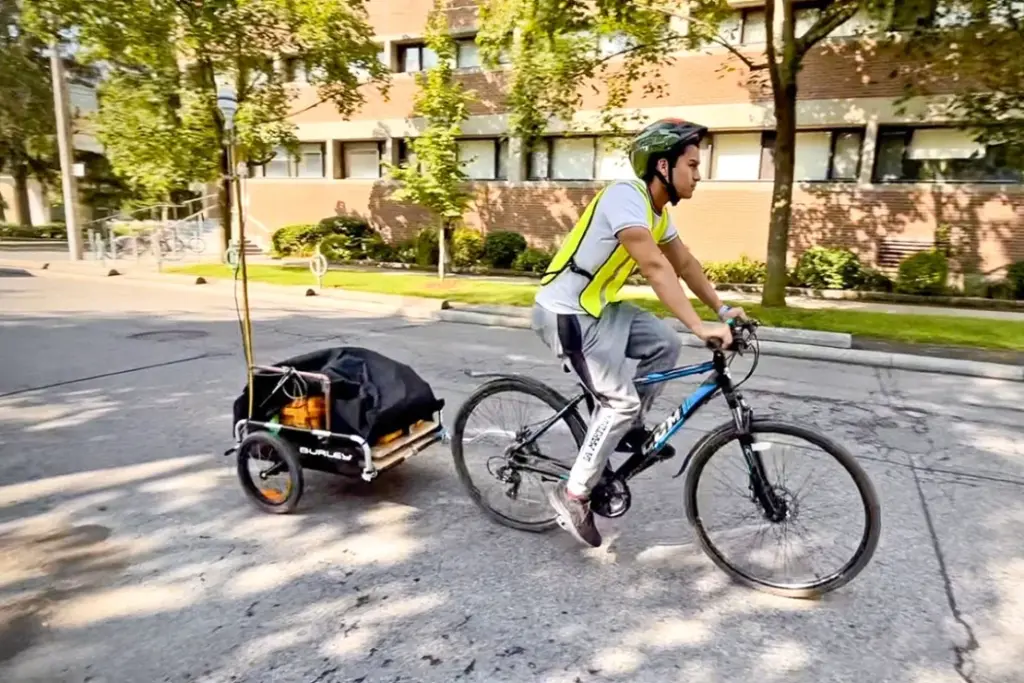Taking the fight against climate change to the streets

For fourth-year undergraduate student Sebastian Ibarra Mendez, the hunt for greenhouse gas emissions starts even before he gets to the lab every morning. As he bikes the streets of Toronto, he is towing a portable gas analyzer capable of measuring the local concentration of methane in the air. The data is uploaded to a website where anyone can view the emission levels recorded, helping to reveal plumes, hotspots or sources of pollution that might otherwise go overlooked.
“Kilogram for kilogram, methane traps over 20 times more heat in the atmosphere than carbon dioxide so it’s very important to track,” he says.
“Measuring levels in different locations helps identify methane emitters. It allows the City of Toronto to better focus its efforts on methane emission reduction and it can be used to test existing policies designed to tackle the problem.”
The research was facilitated by Climate Positive Energy’s (CPE) Summer Undergraduate Research Program, which helped fund Ibarra Mendez along with fellow student Mishaal Kandapath and their supervisor, Debra Wunch, a professor in the Department of Physics and the School of the Environment. The program is one of many ways that Climate Positive Energy facilitates experiential learning throughout its network and beyond.
Some of the key sources of methane detected by the team include water treatment plants, hospitals and landfill sites. The data can help designers and operators of such facilities mitigate the problem.

To learn more about research from Climate Positive Energy, watch Climate Positive, an episode of the Groundbreakers video series.